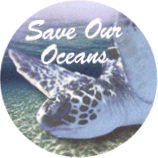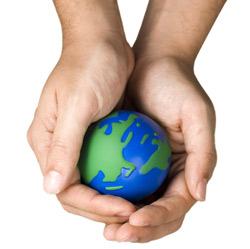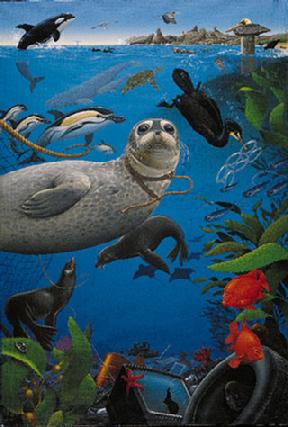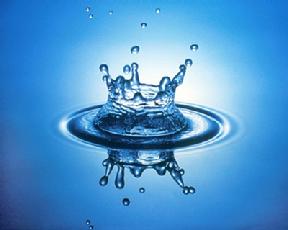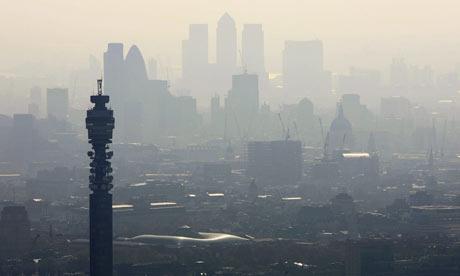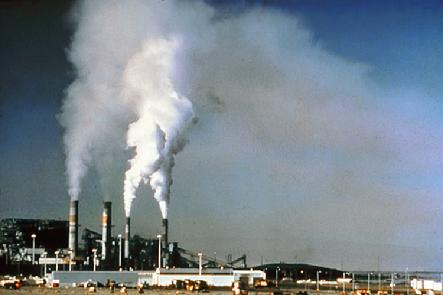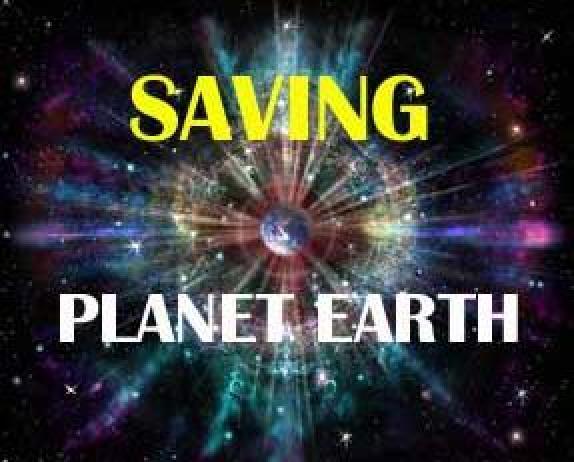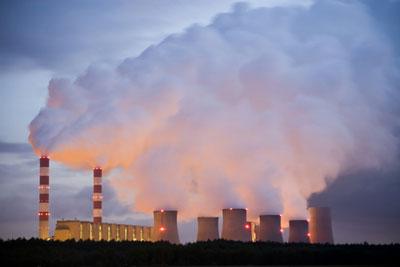Important Message
This Website Terms and Condition of Use Agreement
also known as a 'terms of service agreement'
Will be at the bottom of most web pages!
Please read it before using this website.
Thank You
|
We are actually waging a WAR on Earth; not on it, but against it. We are attacking it by land, by air, and by water. Our methods of attack are numerous and varied, and Earth is losing battle after battle. Unless we call a cease-fire, Earth may lose this war, which in the end means that we lose also.
If you haven't noticed by now, the brown cloud cover in this section of our site depicts the losing battle of Earth, and what the skies might look like world wide and not just in Los Angeles if we don't stop hurting the planet.
|
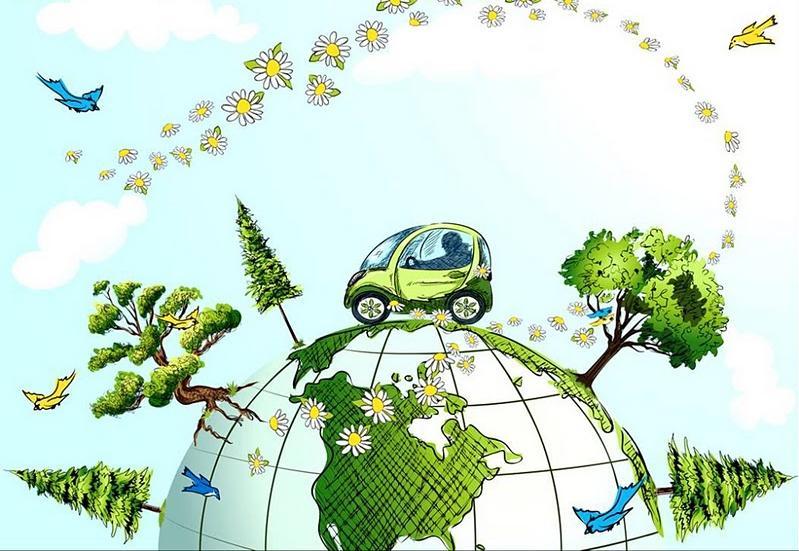 |
| Stop Global Warming ~ Click here |
|
|
Global Warming is a dramatically urgent and serious problem. We don't need to wait for governments to find a solution for this problem: each individual can bring an important help adopting a more responsible lifestyle: starting from little, everyday things. It's the only reasonable way to save our planet, before it is too late.
|
 |
| Air pollution |
|
|
 |
| Our land is in trouble it needs your help. |
|
|
Our land is in trouble it needs your help,
So are the oceans, the coral, the kelp.
There must be a way for all to unite,
To stop the earth from a disastrous fright.
We can't leave this world a barren waste land,
But luscious and fertile, as many creatures as there are sand.
We're destroying our jungles, our forests our beaches,
Taking away what is the earth's like billions of leaches.
Few Natural Habitats are left on the globe,
All are scattered like the beats of a strobe.
We welcome you to an endangered land,
To show you how animals dwindle like an hour glass's sand.
Only you can help to save our earth,
And hopefully, with care give it a rebirth.
|
 |
| Will you be next? |
|
|
|
|
| Important Facts |
- Every year, 14 million children under the age of 5 die of preventable diseases.
- Every day, almost 40,000 children die of malnutrition.
- One out of three children on this planet are malnourished.
- The price to give all of the world's children antibiotics, vaccinations, and other necessary treatment, is equivalent to 2% of the Third World's expenditures on weapons.
|
|
|
How to Help Save Our Earth
(10 tips to saving the planet)
Earth is a very important part of our lives. Most of us wouldn't think of polluting our bodies, yet we are polluting our planet by misuse and overuse of our natural resources. As responsible individuals we should at least do what we can to help reduce, reuse, and recycle what we can as a first step.
We are not completely to blame; we inherited a polluted Earth, but we can do something to ensure that our children can grow up in a cleaner, safer planet than ourselves.
Don't ever let someone get away with saying "what can I do, I am only one person". Each and every person can do a lot, and you can influence others to do something as well.
-
Remind the politicians that you have a vote and a voice about the environment. Write your politicians and tell them how important the environment is to you and to your children. Let the politicians know that you are a registered voter and that you vote for the environment (if you are not - then register to vote).
-
It is great to talk about how important the Earth's environment is to you; but it is more important to put words into action. Some actions on our part are very simple and effective such as: Put on a sweater and socks and turn down the heat in the winter (even a degree or two will make a difference in the heating bill). Adjust the heat when you are out of the house.
-
Many grocery stores sell reusable bags (usually 99 cents), buy them and use them.
-
Turn off the lights when you are not in the room (this is an easy one that is quickly forgotten). Also, unplug your appliances when not in use; even when not in use they can be an "energy sink" just by being plugged in.
-
Plant a tree or other plants. You might want to think about raising some edible plants (help the environment, save money on food, and feed healthy food to your family - what could be better)
-
Use refillable bottles for water. Bottled water is a huge culprit to having a clean environment. Stop buying all of those water bottles that fill up our land-fills. If you need special water, buy a water filter.
-
Reuse what you can, like boxes for mailing and padded envelopes can have several uses in them. Be sure to black out the previous addresses and remove the used stamps.
-
Plan your trips and combine as many errands into an outing as possible. See if you can carpool to work, or take a bus; or ride a bike to work.
-
Use natural cleaners whenever possible like lemons and baking soda. It is healthier for the environment as well as for your family.
-
Pay your bills online and save a tree and 42 cents on postage.
|
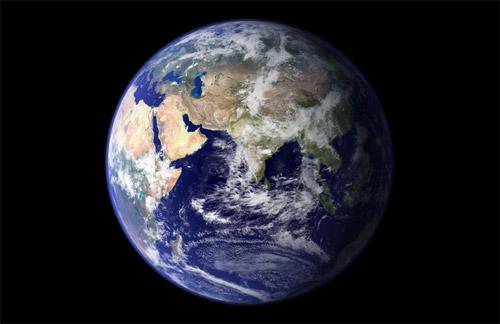 |
| Save Our Earth |
|
|
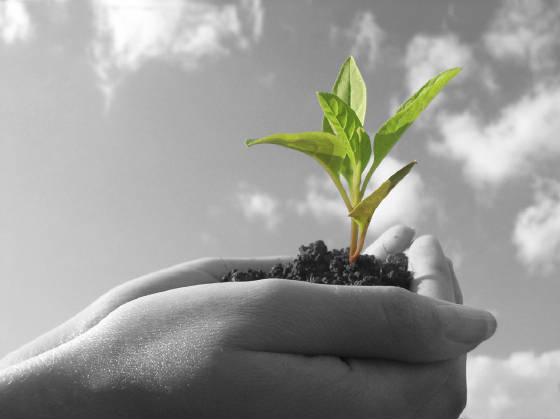 |
| Tropical Rain Forest Click here |
|
|
 |
| helping children learn about the rainforest |
|
|
 |
| A staggering 80 percent of all the life on Earth is to be found hidden beneath the waves and this vast global ocean pulses around our world driving the natural forces which maintain life on our planet. |
|
|
|
Our Mission
Clearcutting, acid rain, the greenhouse effect, pollution. Most of us have heard of these methods by which our planet is being killed. But how many people are aware of the damage being done to our oceans by over-fishing, scraping bottom, or cruise ships? Do you know what companies are putting hazardous chemicals into your air, food, and water? Or what those chemicals do to the human body?
Saving Planet Earth tells you, an inhabitant of this dying planet, exactly what atrocities are being committed right now - locally and globally - and how to stop them.
|
Ten Ways to Celebrate the Earth
|
As Earth Day fast approaches (April 22), you may be thinking, what is earth day and why should I care? Ok, well, let's hope you're NOT thinking that. Earth day is a nationally celebrated day to inspire and raise awareness of the Earth and it's environment. With all the pollution and negative effects that are results of every machinery such as cars, powerplants, huge factories, etc, the Earth is slowly deteriorating. It's our job to help save the Earth. Now, I don't mean that you have to go out and separate all of the recycling in every trash bin, or clean up the streets on your hands and knees, but I'm talking about little way that YOU can make a difference. And just think, if everyone did something small, how much better of a place our Earth would be?
If you need some inspiration on ways that YOU can help, here are a few ideas.
Save the Earth on Earth Day
10. Carpool or re-think you commute:
- If you live close enough, ditch you car and walk or bike to work.
- Car pollution alone kills about 30,000 people per year
- Most ozone pollution is caused by motor vehicles
- Wouldn't it be nicer to have the streets and freeways less congested?
- Look into starting a carpool group in your area. Poll your office to see who's interested. Who knows, you may live on the same street as one of your coworker!
9. Make your own cleaning supplies

- It's simple, really! If you didn't already see the episode of Decor It Yourself where Meg showed how to make all-natural cleaning products, watch it now!
- It is reported that cleaning products are the cause of 8% of non vehicular emmisons of volitile organic compounds
- The chemicals frequently reported in poison cases are found in cleaning products
8. Use energy efficient light bulbs
- According to Energy Star, "If every American home replaced just one light bulb with an ENERGY STAR qualified bulb, we would save enough energy to light more than 3 million homes for a year, more than 0 million in annual energy costs, and prevent greenhouse gases equivalent to the emissions of more than 800,000 cars."
- Enough said.
7. Use reusable shopping bags and lunch boxes
- Consider this: the average American family accumulates about 60 plastic bags for only 4 visits to the supermarket.
- If you watched the earlier Thread Heads episode, you'll know that tote bags are easy to make!
- Tote bags are more stylish and fun to use, and some supermarkets will give you discounts or enter you in a raffle just for bringing your own bag!
6. Reduce your carbon footprint
- What is a Carbon Footprint? It's a measure of the impact that our activities have on the environment in terms of the amount of greenhouse gases we produced. It's measured in units of carbon dioxide.
- You can calculate your carbon footprint and once you know the harm that simple everyday things contribute to the environment, work to REDUCE YOUR CARBON FOOTPRINT!
5. Buy locally and support your local farmers market

- When we choose not to buy locally, we pay for it. This means that the products have to be picked, packed and shipped from faraway places which contribute to pollution from car/truck emmisons. It also means that the produce have to be grown in a special way and given much more preservatives the survive the long haul they must travel to get to your grocery store.
- If we support local farmers, not only does the produce contain more nutrients, but it also allows local farmers to keep their businesses alive and well. The produce is also more affordable than buying from mainstream markets.
- Need help? Find your local farmers market here.
4. Use rechargeable batteries

- Think about how many batteries you go through a month. From portable electronic devices, remote controls, clocks to stereos, some cell phones and toys, we are contributing to the toxicity of the Earth.
- Batteries contain toxic elements such as cadmium, mercury, zinc and lead. Once these batteries and disposed and reach the landfill, the contents eventually released into the ground, soil, air and water.
- Though rechargable batteries may be a little mor expensive, they last much longer and by using these, you can eliminate toxic waste that gets back into the air we breathe, water we use and the soil that we grow stuff in.
- If you do have batteries that are non-rechargable, they should be recycled. Click here to find you local recycling center.
3. Conserve on the heater and air conditioning

- In the winter time, use less heat to keep warm. Layer on the sweaters and bust of the extra thick comforters at night. (This is also better for your skin and overall health - heat is very drying)
- In the summer, make sure you have thick curtains to keep the cold air in, turn off the lights when you're not using them.
- Get an energy audit, so you can evaluate how much energy your home is using, how to reduce it and where the energy is leaking from.
- Clean your filters on air conditioners monthly
- Last year, Americans saved enough energy to power 10 million homes (this year, you can be one of those people that help!)
2. Don't use paper / plastic plates, utensils

- By using disposable utensils and plates, we are contributing to the landfills with extra trash. Sure, it's way easier to throw away your dishes and utensils after a meal then to wash it, but let's face it, it's not only cheaper to use reusable dishware but it's also more eco-friendly.
- What's the point of throwing away stuff when you're just going to have to buy it every week?
- However, if you're at an outdoor gathering like a pic-nic and it just makes sense to buy disposable products, make sure they're biodegradable and eco friendly.
- Bamboo is another great renewable resource for housewares, check out Totally Bamboo for great bamboo products that are good for the environment.
1. Reduce, Reuse, Recycle!
- It may be the oldest saying in the book, but there's a reason why. If we recycle, reuse and reduce, we can help make our Earth a better, cleaner and longer lasting place for future generations.
- Recycling a single plastic bottle can conserve enough energy to light a 60W lightbulb for up to 6 hours
- Reduce – Reducing waste means avoiding unnecessary waste production
- Reuse – Reusing waste means the multiple use of a product in its form
- Recycle – Recycling waste means using waste materials to manufacture other products of a similar nature
Take the time and think about how you can make a differece. You may only be one person, but if everyone contributed a little, think of the difference all of us could make together! So when it comes to recycling and saving the Earth, do it for yourself, do it for Earth Day!
|
‘Taps’ for Bottled Water
Since we already know the environmental problems 30 billion empty plastic bottles a year inflict on our landfill system, and we already realize that plastic bottled water is a waste of resources, landfill space, and water, let’s make a comparison between bottled water and tap water to clarify matters.
Bottled water IS tap water. In a bottle. And we are paying money for this.
Bottled water is bottled by companies that pull the water out of municipal water systems, filter it in the same manner as anyone with a faucet filter at home, put in a useless consumption-waste container, and sold to the public for 100 times the actual cost of the water we can get the exact same way from our own kitchen. For comparison, we can use the electricity from the power company, or we can pay someone else to take electricity from the power grid, store it in a battery, sell us the battery for $15,000 a month, then throw the battery away into a landfill where it will take centuries to decompose. Why would we even contemplate doing this with water?
Water Is An Acquired Taste, Like Air.
The human body, like every other mammal, requires water for survival. Because of this, most early civilizations were founded near large bodies of fresh flowing water (the Tigris, Euphrates, Nile, Tiber, Amazon, Yellow, and Mississippi, to name a few) to provide a steady flow of this life-necessary resource. Over the centuries, municipalities have spent billions of dollars to provide a clean continuous source of drinkable water to their citizens. The Environmental Protection Agency and the Food and Drug Administration set the standards for drinking water in the United States, permitting only trace amounts of harmful metals and chemicals to be present in municipal drinking water supplies (any water connection that serves over 25 households is considered ‘Municipal’ for this purpose). However, the water that is deemed safe and fit for human consumption is sometimes off-colored, contains chlorine, and in many cities, fluoride to promote dental health. So, while for health purposes this water is considered safe drinking water, it may not be as palatable as we would prefer. In this case, we have two options available. We can buy a home filtration kit (a home unit, or a faucet unit, or even a filtration pitcher) to winnow out the chlorine and fluoride and odd taste, or we can buy bottled water. Going without water is not an option, since without water, a human being will die in a week. So, as responsible, environmentally conscious American citizens who have a never-wavering eye on the big picture and who care about conservation, waste, and the global environmental impact of 60,000,000 plastic bottles a day being introduced into our landfill system, we do the intelligent thing.
Nah. We buy the bottled water.
Keep in mind that we bathe in tap water, wash dishes in tap water, clean our houses using tap water, brush our teeth with tap water, wash our clothes in tap water, give tap water to pets, put it in aquariums, water plants, and make ice with tap water. Then we go out and buy bottled water to drink.
Taste Is An Acquired Taste, Depending On The Marketing.
We buy bottled water because it tastes good, it comes in a handy disposable container, and the beverage corporations filter it for us, insuring its safety. To rephrase, we buy bottled water because it tastes just like water, comes in a disposable container that clogs our landfills and burns through our natural resources and wastes 3 times the amount of water it contains just to make the bottle, and beverage corporations use a filtration system similar to ones available for home use, but on a larger scale.
In several taste tests done over the years, bottled water and tap water generally taste just like water. In some tests, tap water actually tastes better than bottled water. So in the battle of taste preference, it’s an even fight. Except for one small detail: bottled water costs 100 times more than tap water.
We already know about the catastrophic cost of 60,000,000 plastic bottles a day being tossed into our landfill system. We already understand the 50 million barrels of oil used to make and transport bottled water to our local grocery stores and drink machines roughly equates to the same amount of oil used to power 3 million cars a year. We are cognizant of the waste disposal limitations of our society, and the hundreds of years it will take for one bottle to decompose in a landfill. There is no such thing as a handy disposable plasic container.
70 to 80 percent of bottled water comes out of a municipal water tap, just like the one in the kitchen, but bigger. The water is filtered by the beverage corporations using mostly the same technology we can use at home on our faucets, as a pitcher, or as a home unit. A home filtration system is advertised for around $600.00. If your family is drinking 6 bottles of water a day, this unit will pay for itself in 6 months. So none of the reasons we buy bottled water are actually valid, but we buy bottled water anyway. There is no logical or rational basis to purchase bottled water for daily use.
So, What Can We Do?
Well, for starters, we can:
1. Quit buying bottled water. If we keep buying bottled water, someone is going to start selling bottled air. Then we are really stuck.
2. If your tap water at home is not to your liking, consider buying a pitcher filter (around $30) a faucet filter (around $75) or a home filtration system (around $600) to take care of the problem. It’s a lot cheaper in the long run, and it takes you out of the consumption-waste cycle.
3. If you buy a filtration unit, make sure you change the filters as recommended, and dispose of used filters in the proper manner. This keeps your water nice and drinkable, and gives your husband something to do in the kitchen.
4.Until the rest of your neighbors catch up to your level of environmental and fiscal responsibility, recycle as much plastic bottle waste as you can. However, restrain yourself from riffling through their garbage. You can only do so much before someone calls the police.
5. If you really want to spend the money on a nice bottle of water, get a glass out of the cabinet, fill it with ice, and top it off with tap water. Then set $2.00 in the barbeque grill outside and set it on fire. Same result, no landfill waste.
6. Use refillable glass bottles and containers for water for trips. Glass is recycle-friendly, and moonshiners have been using Mason jars for decades. What is good for a mountain man bootlegger is good for your family!
7. If you are drinking bottled water as an alternative to drinking soft drinks, pat yourself on the back. Now quit buying plastic bottled water and give the Earth a hug too.
8. If you are a parent sending lunch to school, use that thermos that comes inside the lunch box. You will set a trend, and it will make your child popular!
9.The next time you go to the store to buy a case of bottled water, walk over to the appliance aisle, and buy a filtration pitcher instead. It might cost you an extra $20, but you will not have to buy bottled water ever again. Ever.
10. Go to the local army surplus store, and buy a canteen for fifty cents. They are made of metal, can hold any liquid, and unless you shoot a hole in one, are nearly indestructible. Plus, nothing says fashion like a canteen with a bandolier strap across one shoulder when you are on the road.
|
 |
| Previous Page |
|
| |
 |
| Next Page |
|
|
This website contains, in various sections, portions of copyrighted material not specifically authorized by the copyright owner. This material is used for educational purposes only and presented to provide understanding or give information for issues concerning the public as a whole. In accordance with U.S. Copyright Law Title 17 U.S.C. Section 107, the material on this site is distributed without profit. More Information
Information presented based on medical, news, government, and/or other web based articles or documents does not represent any medical recommendation or legal advice from myself or West Saint Paul Antiques. For specific information and advice on any condition or issue, you must consult a professional health care provider or legal advisor for direction.
I and West Saint Paul Antiques can not be responsible for information others may post on an external website linked here ~ or for websites which link to West Saint Paul Antiques. I would ask, however, that should you see something which you question or which seems incorrect or inappropriate, that you notify me immediately at floyd@weststpaulantiques.com Also, I would very much appreciate being notified if you find links which do not work or other problems with the website itself. Thank You!
Please know that there is no copyright infringement intended with any part of this website ~ should you find something that belongs to you and proper credit has not been given (or if you simply wish for me to remove it),
just let me know and I will do so right away.
|
Website Terms and Condition of Use Agreement
also known as a 'terms of service agreement'
By using this website, West Saint Paul Antiques . Com, you are agreeing to use the site according to and in agreement with the above and following terms of use without limitation or qualification. If you do not agree, then you must refain from using the site.
The 'Terms of Use' govern your access to and use of this website and facebook pages associated with it. If you do not agree to all of the Terms of Use, do not access or use the website, or the facebook sites. By accessing or using any of them, you and any entity you are authorized to represent signify your agreement to be bound by the Terms of Use.
Said Terms of Use may be revised and/or updated at any time by posting of the changes on this page of the website. Your continued usage of the website, or the facebook site(s) after any changes to the Terms of Use will mean that you have accepted the changes. Also, any these sites themselves may be changed, supplemented, deleted, and/or updated at my sole discretion without notice; this establishes intellectual property rights by owner (myself).
It saddens me to include a Terms of Use for West Saint Paul Antiques . Com, but we all realize it is something that is necessary and must be done these days. By using the website, or facebook for West Saint Paul Antiques, you represent that you are of legal age and that you agree to be bound by the Terms of Use and any subsequent modifications. Your use of the West Saint Paul Antiques sites signify your electronic acceptance of the Terms of Use and constitute your signature to same as if you had actually signed an agreement embodying the terms.
|
|


























